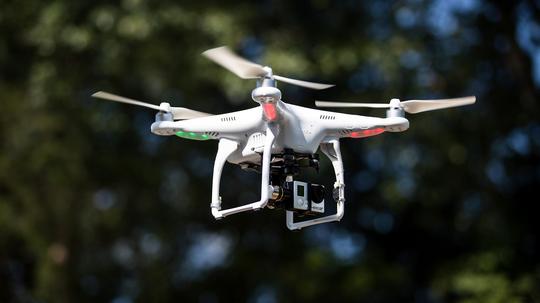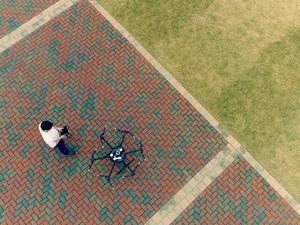
Entrepreneurs looking to monetize 5G networks “and beyond” have a new tool thanks to a national effort spearheaded by a research team at North Carolina State University.
AERPAW, a project designed to accelerate the integration of unmanned aerial systems – also known as drones – is now generally available, a development officials say could give Triangle companies the upper hand.
The Platforms for Advanced Wireless Research Project Office announced the general availability of the AERPAW wireless testbed for network communications and UAS research Tuesday – meaning academics, entrepreneurs and big name companies alike can access the tools to accelerate their own innovation in areas such as 5G or even 6G.
The AERPAW – Aerial Experimentation and Research Platform for Advanced Wireless – testbed is located at Raleigh’s North Carolina State University, which means local companies looking to monetize wireless technologies have a proximity advantage, said Ismail Guvenc, AERPAW principal investigator and engineering professor at N.C. State.
“I think this is a great opportunity for startups and entrepreneurs,” he said. “It can support local companies if they have some new wireless idea or a new technology."
Guvenc said a slew of local companies have already shown interest in the project, including networking giant Cisco (Nasdaq: CSCO). Entrepreneurs can also utilize the technology – particularly those working in networking, autonomous vehicles or drones. His team has also communicated with officials from the North Carolina Department of Transportation on the potential for future experiments, Guvenc said.
This phase of the project has AERPAW supporting drone experiments where researchers need to collect signal measurement data. Drones flying a path pre-programmed by the researcher can collect data, providing insights into radio performance and opportunities for network optimization.
AERPAW is in phase one, which includes two fixed network nodes on N.C. State's Centennial Campus in Raleigh and a tower with another fixed node deployed at the Lake Wheeler Field Laboratory, an agricultural site owned by the university. The nodes combine with two aerial mountain nodes on customer multicopter drones and another portable node attached to a ground-based rover. The nodes can be configured to create different types of network environments using a variety of open source software stacks.
AERPAW is the result of a multi-institution partnership led by N.C. State with Wireless Research Center of North Carolina, Renaissance Computing Institute, Mississippi State University, University of South Carolina, Purdue University, Town of Cary, City of Raleigh, NCDOT and many other academic, industry and municipal partners.
In a prepared statement Tuesday, Marc Hoit, vice chancellor for information technology at N.C. State, said it was “only the beginning for AERPAW.”
“We’re excited to bring experimenters to the platform, and we look forward to expanding the capabilities of the testbed to enable even greater academic and industry innovation across wireless and unmanned aerial systems,” he stated.
